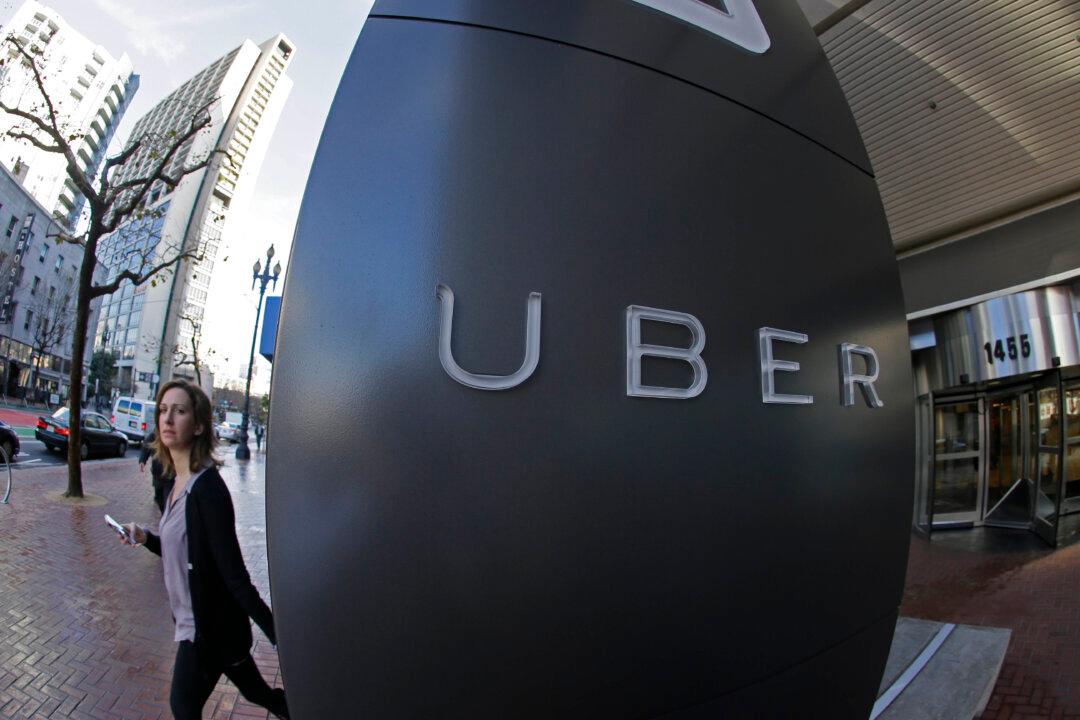PARIS—French taxis went on a nationwide strike Thursday, snarling traffic in major cities after weeks of rising and sometimes violent tensions over Uber. Travelers hoping to catch a flight walked alongside the highway, rolling their bags behind them, as riot police fired tear gas canisters to hold back some strikers.
Despite repeated rulings outlawing Uber’s lowest-cost service, its drivers continue to ply French roads and the American company is actively recruiting.
Uber’s more expensive livery service is still legal but a source of intense frustration for taxi drivers, who pay tens of thousands of euros (dollars) for their medallions and who face customer complaints that they are being resistant to changes such as credit cards and geolocation.





